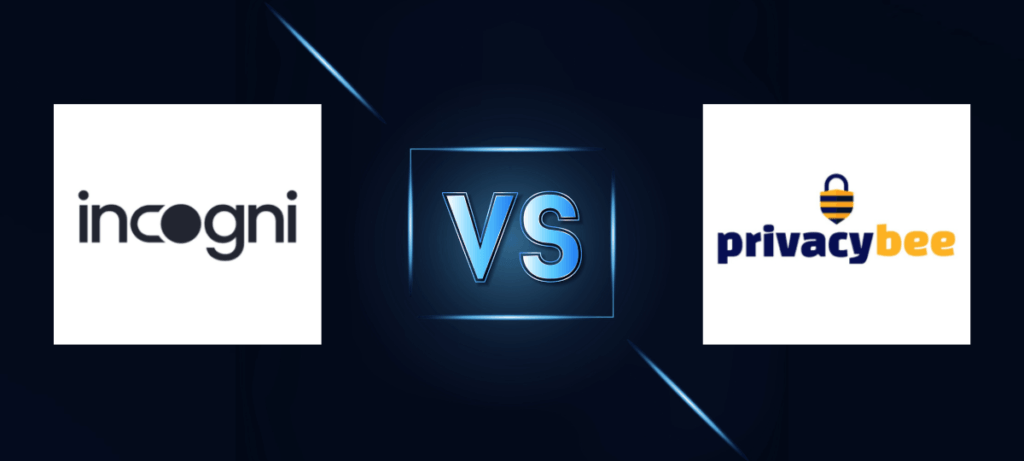
In an era where cybercrimes and digital threats loom large, safeguarding your online privacy is no longer just smart – it’s a necessity. With personal data scattered across the digital landscape, it’s no surprise that privacy breaches, identity theft, and unwanted exposure have become ever-present concerns. In this digital jungle, your online identity can feel like a fragile thread in the vast web of data, constantly under threat.
That’s where data removal services come into play, promising to prune the overgrown garden of your digital life. Two major contenders in this arena, Privacy Bee and Incogni, have emerged to help you in reclaiming your online privacy. But which one is the right choice for you?
In this comprehensive comparison guide, we embark on an exploration of these digital guardians. We’ll dissect the services, peel back the layers, and uncover their unique strengths and weaknesses. Along the way, we’ll arm you with the know-how you need to make the right decision and protect your online presence.
| Incogni | Privacy Bee | |
|---|---|---|
| Website | Incogni.com | PrivacyBee.com |
| Availability | US, Canada, the UK, the Isle of Man, Switzerland, Norway, Iceland, Liechtenstein, and all of the EU | Primarily serves the US market |
| Coverage | 180+ data brokers | 350+ |
| Support | Email and detailed knowledge base | Chatbot, email, and a blog |
| Price | $6.49/mo. | $16.42/mo. |
| Annual Price | $77.88 | $197.00 |
| Best Deal | 55% Off Discount > | N/A |
Key Takeaways
Privacy Bee provides a comprehensive suite of privacy tools but may be costlier than some of its alternatives.
Incogni, on the other hand, boasts global availability, making sure that users across different countries can benefit from its services.
Incogni offers advantages such as affordability, effectiveness, and automation while Privacy Bee focuses on proactive measures for strong security.
Now, let’s embark on this journey to secure your online privacy. It is at stake, and we’re here to help you make the right choice to safeguard it.
Privacy Bee vs Incogni: Which company is more trustworthy?
In a digital age rife with data breaches and online threats, data removal services have emerged as a beacon of hope in this often perilous landscape, promising to help individuals regain control of their personal data online.
Two notable challengers in this realm are Privacy Bee and Incogni, each contending for the trust and loyalty of privacy-conscious consumers. But which one is more trustworthy? Let’s find out.
Privacy Bee overview
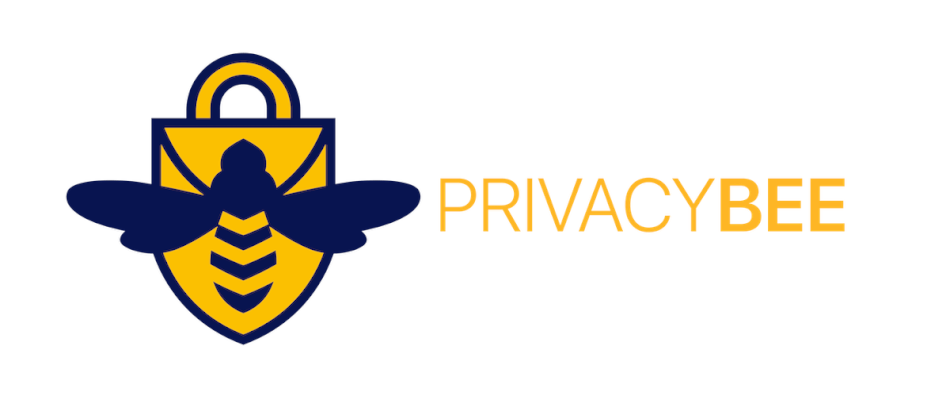
Established in 2020 and headquartered in the vibrant tech hub of Atlanta (Georgia, the US), Privacy Bee has rapidly solidified its reputation as a trustworthy player in the realm of data removal services. The company is backed by a team of 50-60 skilled professionals dedicated to protecting your personal information.
Although specific details about Privacy Bee’s background remain somewhat elusive, its trustworthiness is underscored by numerous user reviews and our own experiences. Privacy Bee aims to keep your personal information safe and give you peace of mind in this age of data privacy concerns.
It does this by finding and removing your personal data from data broker sites and other sources. Its dark web monitoring feature is another nice touch. It actively scans for data breach dumps that might otherwise remain undetected.
Privacy Bee pros and cons
As we explore Privacy Bee as your data removal service, it’s essential to weigh the pros and cons. So, let’s get started.
Pros:
Privacy Bee provides a risk assessment feature that estimates your online exposure. This can help you evaluate the extent of your privacy risk and identify areas that need attention.
It assists in removing your information from marketing lists, reducing the influx of unwanted emails and advertisements
Privacy Bee also keeps an eye on the dark web, where your personal info might pop up. It alerts you if there are any issues.
Its browser extension, Active Do Not Track, gives you the power to control how companies use your personal data.
Privacy Bee’s family-friendly plans make it easy for multiple family members to enjoy its services under a single subscription.
Privacy Bee furnishes an easily understandable report, making it simple to grasp your online privacy status.
Cons:
Privacy Bee might not remove your data from all sources, given the limitations of some data broker websites. This could leave some of your information exposed.
Its services may come at a higher cost compared to some other privacy-protection services. This could be a drawback for budget-conscious users.
Now, let’s shift our focus to its main competitor, Incogni.
Incogni overview
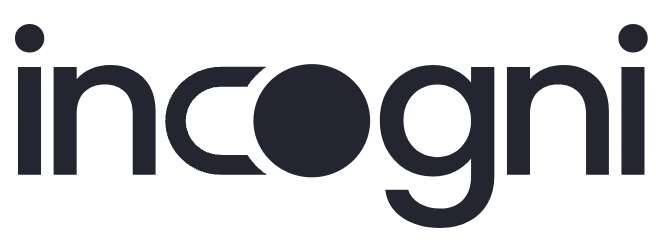
While Incogni might not dominate the online spotlight, it stands strong thanks to its significant partnership with Surfshark, a well-known VPN provider.
Situated in Amsterdam (Netherlands), Incogni is powered by a team of around 200 dedicated professionals. Their mission is straightforward. It’s all about enhancing online privacy and security in a world marked by growing data breaches and data brokerage concerns. However, delving deeper into Incogni’s privacy approach is key.
Keep in mind that Incogni shares personal information with third-party providers. It also reserves the right to share data in compliance with relevant laws and regulations. This aspect of its privacy policy might raise red flags for those who prioritize their privacy.
Incogni pros and cons
Now, let’s explore the benefits and drawbacks of choosing Incogni as your data removal service.
Pros:
Incogni offers a 30-day money-back guarantee to all subscribers, giving you peace of mind while testing the service.
With a straightforward sign-up process, Incogni gets you started quickly and efficiently.
Incogni provides an easy-to-understand interface, simplifying data removal requests for users.
The service boasts fast response times and removals, ensuring that your personal information is swiftly addressed.
Incogni keeps subscribers informed by providing weekly updates on the data removal process, keeping you in the loop.
It offers pretty reasonable pricing, making it accessible to users seeking to enhance their online privacy.
If necessary, Incogni repeats removal requests, ensuring your data is consistently scrubbed from data broker websites.
Cons:
Incogni doesn’t offer in-depth reports detailing personal information found on data broker websites, leaving users curious about specifics.
It doesn’t have a free trial, so you need a subscription without trying it first.
The service doesn’t provide an extensive range of support options, potentially leaving users with fewer avenues for assistance.
Incogni Cyber Deal is live:
Get 50% off Incogni with the exclusive coupon link below:
(Coupon is applied automatically; 30 day money-back guarantee.)
With these powerful features at your disposal, you can confidently address the challenges presented by data broker companies and successfully wipe away your digital trail.
Now that we’ve taken a quick look at Privacy Bee and Incogni, it’s time to dive into the heart of the matter. That is, how these two data removal services work to erase your personal data online.
Data removal process: How do Privacy Bee and Incogni remove your data from the internet?
Both Privacy Bee and Incogni employ a combination of automated and manual methods to erase your data from the web. Privacy Bee compiles privacy opt-outs from the internet and presents them on a simple-to-use dashboard. Users can select companies for opt-outs, and Privacy Bee handles the requests and monitors them to ensure your data is fully removed, even from those it was sold to.
In contrast, Incogni utilizes an algorithm to predict the likelihood of data brokers having your data and then sends data removal requests to those with a high probability.
Since both services offer unique approaches to data removal, it’s essential to weigh their strengths and weaknesses when choosing the right service for you.
Buried under a mountain of junk emails and spam? Unearth effective strategies in our detailed guide to significantly cut down on unwanted messages and restore order to your inbox. Meanwhile, if you’re wondering how to regain control of your digital life, check out these powerful privacy tools.
Privacy compliance and regulations: What laws power Privacy Bee and Incogni?
To ensure your online privacy, both Privacy Bee and Incogni comply with the California Consumer Privacy Act (CCPA) and the General Data Protection Regulation (GDPR). These laws give them the authority to remove your data from the internet, while also holding data brokers accountable for how they handle your data.
Additionally, Incogni follows the UK GDPR, Canada’s PIPEDA, and Switzerland’s nFADP for an added layer of privacy protection.
Both services put these privacy regulations to good use by sending data removal requests to data brokers. This compels the brokers to honor the removal and opt-out requests. Thanks to these legal frameworks, Privacy Bee and Incogni can effectively assist users in taking control of their personal information.
Dive into the digital world armed with empowerment by exploring our carefully curated list of top-tier data removal services.
Another concrete step in securing your sensitive data and fortifying online privacy is delving into techniques for removing yourself from the internet.
Availability: Does Privacy Bee or Incogni cover more countries?
If you’re wondering whether Privacy Bee caters to users in Europe, the short answer is no. While Privacy Bee has ambitious plans to expand its reach globally, as of now, it primarily serves the US market. Although it’s gearing up for a broader presence, European users might have to wait a little while longer.
In contrast, Incogni takes a more comprehensive approach to geographic availability. Their services are available in multiple countries, spanning across the US, the UK, Canada, Switzerland, the Isle of Man, Norway, Iceland, Liechtenstein, and the EU. This wide-reaching availability positions Incogni as an attractive option for users looking for broader geographical coverage.
However, when considering these two services, remember that the effectiveness of data removal may vary based on your location and the data brokers involved.
Availability winner: Incogni
Incogni vs Privacy Bee: Who has better features?
Both Incogni and Privacy Bee offer unique toolsets created to minimize your digital footprint and safeguard your personal information from prying eyes. So, let’s delve into the specifics and find out which one has superior features.
If you’re searching for other ways to maintain your privacy, learn more about browser fingerprinting protection and its benefits
Data broker coverage: Does Privacy Bee or Incogni cover more data brokers?
Privacy Bee proudly claims to scrub your personal data from more than 350 data brokers and people search sites. This wide coverage gives users a great chance to remove their personal information from various online sources.
On the flip side, Incogni covers over 180 data brokers, including people search sites. While this is a significant number, Privacy Bee’s coverage of more than 350 data brokers gives it a bit of an edge.
But remember, it’s not all about the numbers. The specific data brokers and databases targeted by each service also matter. So, when choosing the right data removal service for your needs, consider factors like features, pricing, and availability, in addition to the number of data brokers covered.
Ever encountered the term doxxing? It’s the malicious act of exposing private information online, typically with the intent to harm or harass. Check out our guide on how to avoid doxxing for crucial tips to safeguard your personal information.
Data broker coverage winner: Privacy Bee
Automation and efficiency: Is Privacy Bee or Incogni better at removing data?
Using a blend of automation and manual processes, Privacy Bee ensures an all-embracing approach to privacy protection and successful data removal. This approach combines automated processes with human agents. This allows Privacy Bee to effectively remove personal data from the internet and corporate databases alike.
In contrast, Incogni relies on a fully automated process driven by an algorithm. It predicts the likelihood of individual data brokers possessing your personal data and sends removal requests based on this analysis. When choosing between the two, it’s crucial to consider their strengths and weaknesses to find the best fit for you.
In-depth reporting: Who provides more detailed removal reports?
When it comes to understanding the nitty-gritty details of your data removal efforts, both Privacy Bee and Incogni offer their unique insights. However, they approach it from slightly different angles.
Privacy Bee takes a deep dive into providing you with comprehensive reports that aim to leave no stone unturned in your quest for online privacy. Their detailed reports include:
Information about any personal data found on the internet and dark web.
Notifications about data breaches or leaks that might have exposed your personal information.
Detailed insights into the steps taken to remove your data from various online sources and corporate databases.
But that’s not all. Privacy Bee also keeps you well-informed with their exposure history report. These offers a straightforward summary of any sensitive data exposures that the service has detected.
On the other hand, Incogni takes an alternative approach. It puts a strong emphasis on efficiently removing your data from data broker sites. However, it’s important to note that Incogni doesn’t offer the same level of in-depth reporting as Privacy Bee. Its reports don’t dive into the specific personal data they uncover during the removal process, which might leave you curious about the specifics.
To sum it up, Privacy Bee is your go-to choice if you’re looking for comprehensive reports that provide a clear picture of your data deletion efforts, whereas Incogni’s strength lies in its efficient data removal process.
User experience: Is Privacy Bee or Incogni more user-friendly?
In the realm of user experience, both Privacy Bee and Incogni strive to offer user-friendly platforms that streamline online data management.
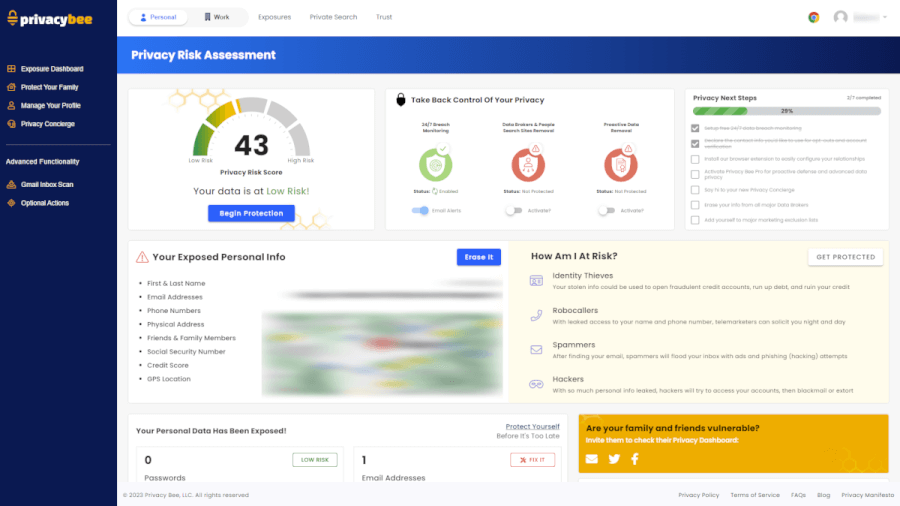
Privacy Bee’s easy-to-use interface will make protecting your online privacy a breeze.
Privacy Bee boasts an intuitive and straightforward user interface, simplifying the process of safeguarding your online privacy. Their platform features an intuitive dashboard that provides a clear overview of users’ data privacy status, complete with essential information like the count of blocked trackers, detected data breaches, and removed data brokers.
This layout ensures that users can easily navigate the platform, monitor their privacy progress, and stay informed about private data usage on their social media accounts.
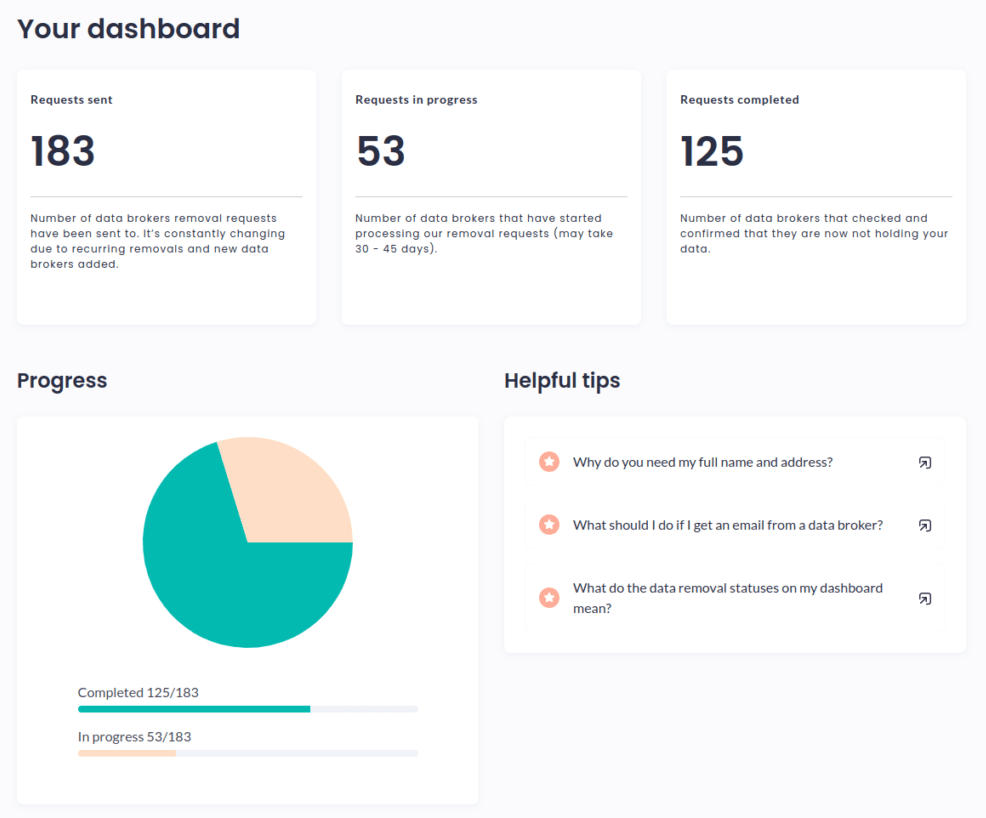
Incogni also places a strong emphasis on user-friendliness, ensuring that their platform offers an easy-to-use and well-organized interface. Much like Privacy Bee, Incogni’s commitment to user experience shines through in their design.
Both services prioritize simplicity and efficiency, allowing you to manage your privacy without grappling with complicated interfaces or technical jargon. So, both solutions are tailored to enhance the user experience and make online privacy accessible to everyone.
Searching for an effortless and secure method to safeguard your private data? Look no further than Optery, a data removal service that streamlines the process like no other. Delve into the specifics with our in-depth Optery review.
User experience winner: It’s a tie
Additional features and benefits: Who offers better privacy extras?
When it comes to extras for protecting your online privacy, Privacy Bee offers a wide variety of features designed to minimize the risk of identity theft and unwanted data exposure.
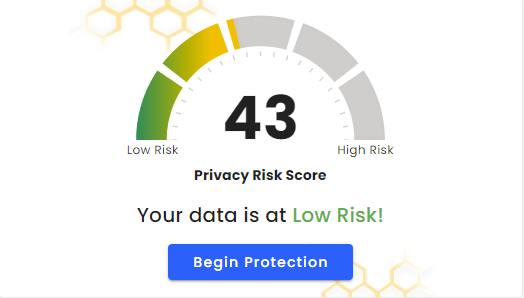
For starters, Privacy Bee continually monitors the web for potential data breaches, ensuring your sensitive information remains secure. It offers a handy vulnerability scanner that helps identify weak points in your digital defenses, empowering you to address vulnerabilities proactively.

Moreover, Privacy Bee provides users with a free browser extension for tracker-blocking. It prevents sneaky trackers from collecting your personal data, regardless of whether you use Chrome or Firefox.
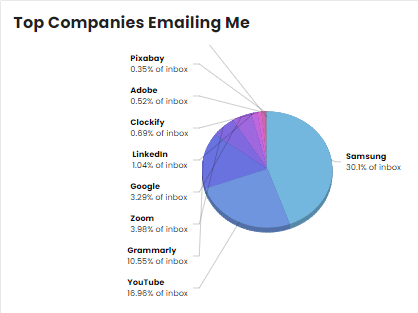
On top of this, Privacy Bee throws in an email inbox scan feature that allows you to regain control over your contact information. While it’s currently available exclusively for Gmail, plans are in place to extend support to Yahoo and Outlook.
Meanwhile, Incogni takes a more streamlined approach, primarily focusing on automating data removal requests and covering a predefined list of data brokers. In short, Incogni doesn’t actually offer any privacy extras. Another service packed with features is DeleteMe – for a detailed exploration, take a look at our comprehensive DeleteMe review.
Interested in how DeleteMe compares to other similar services? Delve into our Incogni vs DeleteMe comparison guide for valuable insights.
At the same time, if you’re tired of your personal information circulating on Whitepages, our guide on how to opt out of Whitepages provides step-by-step instructions to scrub your data from their database.
Core and extra features winner: Privacy Bee
Security and privacy: Is Privacy Bee or Incogni a safer choice?
When it comes to data security and privacy, both Privacy Bee and Incogni prioritize safeguarding their users’ personal information.
Privacy Bee employs SSL encryption when users transmit sensitive data, like passwords, emphasizing data transmission security. In addition to that, Privacy Bee adheres to a strict policy of not sharing users’ data with external data brokers. This commitment to data privacy ensures that the data users entrust to Privacy Bee remains protected and confidential.
At the same time, Incogni’s focus is on minimal data collection and robust encryption to comply with privacy regulations. While it may lack additional security features, its commitment to data protection is evident in its transparent privacy policy.
Incogni’s privacy policy outlines responsible data handling practices, including data deletion within 12 months of service cessation and adherence to legal compliance.
If you want to find out more, you can check Privacy Bee’s privacy policy and Incogni’s privacy policy for yourself.
And if you’re concerned about identity theft and fraud, you should explore tools and techniques for identity theft protection.
Similarly, if you’re weary of the incessant nuisance of robocalls, our in-depth guide on stopping spam calls and robocalls is your solution.
Security and privacy winner: It’s a tie
Customer support and resources: Who has more helpful customer support?
When it comes to safeguarding your online privacy, having customer support you can rely on is critical.
The good news is that Privacy Bee has got your back with more than one way to get in touch. You can talk with their support team through a phone call or simply drop them a message using the contact form on their website.
Privacy Bee also has a helpful chatbot right on their website, making it super convenient to seek assistance. A quick heads-up, though – if you chat with the bot, it may ask for your email address.
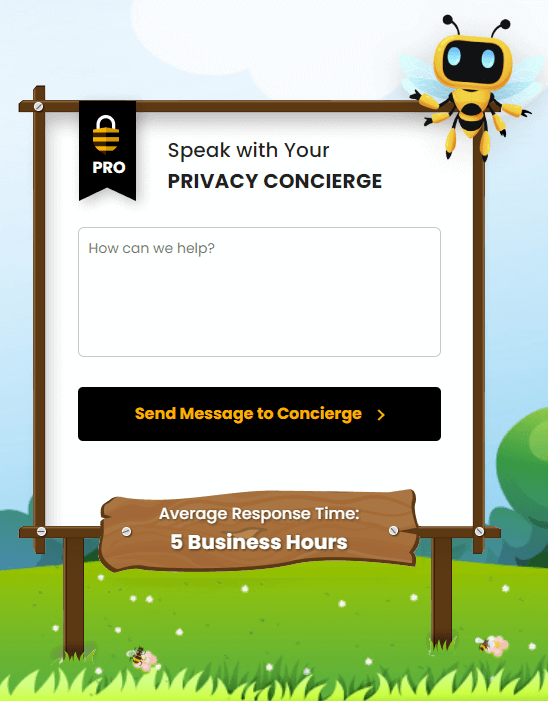
Now, here’s the real gem for Privacy Bee subscribers, and it’s called the “Privacy Concierge.” This exclusive support feature lets you tap into expert advice for all your privacy-related questions or concerns.
In addition to these ways of reaching out, Privacy Bee offers email support and maintains a lively blog loaded with step-by-step guides. We couldn’t find a traditional knowledgebase, but the blog served as a handy resource to tackle our issues and concerns.
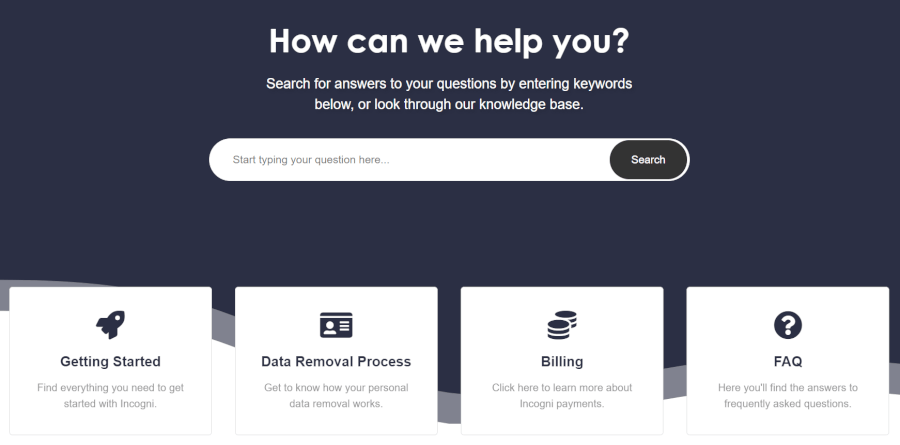
Now, on the other side of the fence, Incogni takes a more streamlined approach. It offers email support and have a neatly organized knowledgebase that covers all the essential topics, from protecting your privacy to dealing with data brokers. It’s worth noting that Incogni doesn’t have live chat support.
In summary, while both contenders offer helpful support channels, Privacy Bee offers more overall support options.
Customer support and resources winner: Privacy Bee
Plans and pricing: Does Privacy Bee or Incogni offer greater value for money?
When it comes to plans and pricing, both Privacy Bee and Incogni have something to offer.
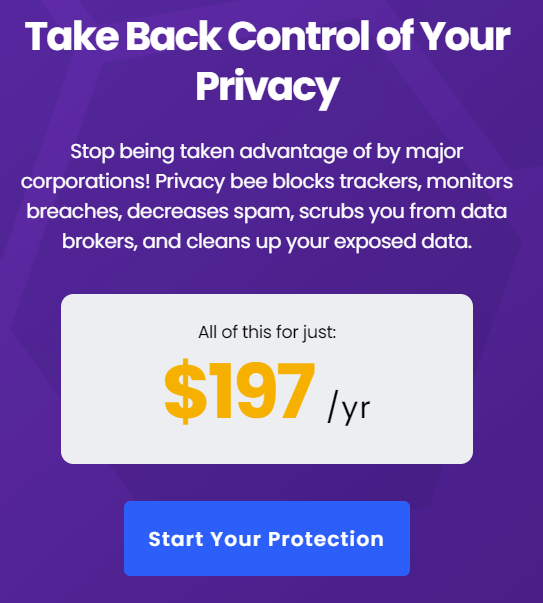
Privacy Bee kicks things off with a free risk assessment, a handy way to evaluate your online privacy exposure. It’s the superb starting point for those dipping their toes into privacy protection.
However, for more robust privacy measures, Privacy Bee’s premium Pro membership at $197 per year is the way to go. This subscription unlocks an array of features, including the removal of your personal information from data brokers.
What sets Privacy Bee apart is its family-friendly approach. You can add family members to your premium account, extending privacy protection to your loved ones.

Incogni, on the other hand, presents two subscription options: a monthly plan at $13.39 per month and an annual plan at $6.49 per month. While the monthly plan allows for easy cancellation after just one month, the annual plan offers more value, making it a cost-effective choice for budget-conscious users.
One noteworthy advantage of Incogni is its 30-day money-back guarantee, applicable to both plans. So, in addition to being a more budget-friendly choice, Incogni will also provide you with peace of mind.
Plans and pricing winner: Incogni
See all Incogni prices and discounts here >>
Privacy Bee vs Incogni FAQ
How do Privacy Bee and Incogni remove personal data from the internet?
Privacy Bee employs a combination of automated and manual processes to detect, submit, and monitor data removal requests. Incogni, on the other hand, relies on an automated process that predicts the probability of data brokers having your information and submits removal requests to those with a high probability.
Which service has better features, Privacy Bee or Incogni?
Privacy Bee offers a fine suite of features, including round-the-clock scanning for data breach events, an integrated vulnerability scanner, corporate database scrubbing, and an easy-to-use browser extension for tracker blocking. Meanwhile, Incogni focuses on automating data removal requests and does not provide as many additional features.
Which service covers more countries, Privacy Bee or Incogni?
Incogni covers a more extensive range of countries, including the US, UK, Canada, Switzerland, Isle of Man, Norway, Iceland, Liechtenstein, and the EU, making it a more globally available service. Privacy Bee, on the other hand, mainly focuses on the US market.
Which service offers more extensive coverage of data brokers and people search sites, Incogni of Privacy Bee?
Privacy Bee offers coverage of more than 350 data brokers and people search sites, giving it an edge in terms of comprehensive coverage. Incogni covers over 180 data brokers but does not provide the same extensive coverage as Privacy Bee.
Can I use Privacy Bee or Incogni to protect my family’s online privacy?
Privacy Bee offers a family-friendly option, allowing you to add family members to your premium account. Unfortunately, Incogni does not currently provide a family-friendly plan. So, if you want to protect your family’s online privacy, Privacy Bee is your best bet.
Incogni vs Privacy Bee: Which one reigns supreme?
After an in-depth exploration of Incogni and Privacy Bee, it’s time to weigh the pros and cons and figure out which one comes out on top in the battle of data removal and online privacy protection.
First, Let’s take a closer look at some of the critical aspects that set these two privacy protectors apart:
Availability: Incogni – while Privacy Bee provides coverage exclusively within the US, Incogni offers a broader service footprint beyond its core regions.
Data broker coverage: Privacy Bee – it boasts coverage of more than 350 data brokers and people search sites, giving you a wide-reaching net to protect your private information.
User experience: It’s a tie – both Privacy Bee and Incogni provide simple sign-up and feature user-friendly interfaces that ensure effortless navigation.
Core and extra features: Privacy Bee – although both contenders excel in core features, Privacy Bee outperforms Incogni in terms of additional privacy tools such as continuous scanning for data breach events, an integrated vulnerability scanner, and corporate database scrubbing.
Security and privacy: It’s a tie – both our contenders take data security and privacy seriously, ensuring that your private information remains safe and protected.
Customer support and resources: Privacy Bee – while both providers offer helpful support options, Privacy Bee stands out by providing a wider range of support resources.
Plans and pricing: Incogni – Incogni not only offers a more budget-friendly option but also ensures your peace of mind with a 30-day money-back guarantee.
When comparing Incogni and Privacy Bee, you’ll find that both provide superb data removal and online privacy protection features, making your choice a win-win. Both aim to empower users in their battle for digital privacy, and each has its unique strong points and benefits.
However, when we weigh these aspects side by side, Privacy Bee emerges as the slightly more comprehensive choice. With its extensive data broker coverage, excellent privacy extras, and more customer support channels, Privacy Bee takes the edge. However, if you’re looking for a budget-friendly solution that does the work without throwing tons of bells and whistles at you, Incogni might be a better fit.
If you’d like to examine our contenders more closely, you can explore our Privacy Bee review and Incogni review.
This Incogni vs Privacy Bee comparison guide was last updated on April 28, 2024.

The following is not meant to make a case against, merely to caution.
All of the research I have done on these “data removal” services seems to suggest that they can potentially do more harm than good. Think of “registry cleaner” products on PCs for the last 20 years. One might think Restore Privacy would be more cautious against them in general.
A number of months ago I set out to research the best option for myself to use and came away feeling it was better not to engage any of them at all and merely adopt even more stringent personal hygeine online than I already have in the past.
Most operate by sending out rather blanket removal requests to lists of known offenders both big and small (the higher your subscription level, the larger the list), as there is no way for them to hire enough people to manually send requests on a case by case basis.
Some claim to avoid the larger blanket requests by only sending mass requests to data vendors they seem to have specifically flagged as being likely to have some of the personal info you provide upon signing up.
The problems are that:
1. In either case, they are nonetheless often sending the data removal requests to entities that may never have had any of your data to begin with, which is now only increasing your data proliferation.
2. Even worse, laws in some areas require that these requests be retained for a specified period of time (up to several years). Meaning, a company that may not have previously had your data, now not only has your data, but has it for a very long time by law.
3. These removal requests are only actually legally binding in the countries/states/provinces that have such laws mandating the requests be fulfilled, lest the entity face whatever consequences are outlined by law or are subject to by permitted civil action.
4. On top of all of this, the databases are so large and profligate and the perpetual back and forth selling, sharing and trading so constant; that even if you have successfully removed your information from a data vendor, it will once again be there not long after.
5. Companies (many not even actually data vendors) are now so flooded with these mass requests for years now, that they are: A. Prone to issue false (not necessarily lies) responses that a request has been attended to; or B. Flat out ignore them if they are not legally bound to do so.
6. In order to engage these companies, you have to assign unto them some small power of attorney to act on your behalf. I’ve not read many of these legal agreements that one is consenting to, but there is no doubt concerns to be had in the long blocks of text within them.
The net result seems to be that the use of these services can actually reduce your privacy (if not leave it about the same) rather than increase it, no matter how well intentioned, honest and hard-working they may currently be. Less junk mail or less spam in my inbox isn’t quite a tradeoff I find helpful with regard to potentially spreading my other data even further. And some of the extra add-ons are already offered on other privacy products people are already using such as their paid VPNs, pass managers and credit monitoring.
Much like my reference to a PC registry cleaner above, it’s technically possible there may be some good results, but you really have no way of knowing what those results are versus that countless bad results unless you are going to make it a full time pursuit in investigating, which would already negate the purpose of the service to begin with.
One of the most consistent answers I could come to was that personally soliciting for your data removal from the dozen giants such as LexusNexus would probably have the most effect anyway. But once again, your data still has a high likelihood of returning to those giants again and again, then filtering back out to smaller and smaller entities again and again.
The most reasoned approaches, it seemed, were to practice ever more stringent data hygiene online (a large resource of which can be found on this site) and hope that the persistent flood of new data from the unhygienic (which there will never be a shortage of) starts to flush out your old data.
I will note that my research was not 1st-hand experience of using these services and was merely conducted by hours of scrounging through forums, looking through the services’ websites, trying to lookup data privacy regulations for different countries and so on. I am not by any means a privacy expert or even a terminal-level technical user.
Hope that all provides some insight to at least a few people.